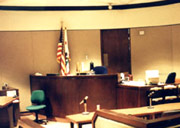|
|
|
Microsoft to pay up to $180 million to settle Iowa suit
Class Action |
2007/04/18 13:19
|
Microsoft Corp. agreed Wednesday to pay Iowans up to $180 million to settle a class-action lawsuit that claimed the company had a monopoly that cost the state's citizens millions of dollars extra for software products. The $179.95 million settlement means individuals in Iowa who bought certain Microsoft products separately or preinstalled on computers between May 18, 1994, and June 30, 2006, will be eligible for cash. Government agencies and companies with multiple copies purchased between July 1, 2002, and June 30, 2006, can seek vouchers that will enable them to buy computer equipment and software. The amount that can be claimed will depend on which product and how many copies were purchased. For each copy of Microsoft Windows or MS-DOS, customers can claim $16. Microsoft Excel is worth $25 a copy and Microsoft Office, $29 a copy. For Word, Works and Home Essential software, consumers can claim $10 a copy, according to the agreement. No proof of purchase will be required for online claims of up to $100 or for mail claims of up to $200. Claimants will be required to sign a legal document saying their claim is accurate. Lying can bring a charge of perjury. Notification will be sent to the estimated 1 million class members on April 25, the date when they can begin claiming money. The claim period ends Dec. 14. |
|
|
|
|
|
|
Judge rules lawsuit in Ball State shooting can proceed
Court Watch |
2007/04/18 12:18
|
| A federal judge says he won't dismiss a civil rights lawsuit filed against a former Ball State University police officer by the family of a student who was fatally shot by the officer. U-S District Judge Richard Young refused yesterday to reconsider his previous order allowing the wrongful death lawsuit against Robert Duplain to go to trial. A Delaware County grand jury cleared Duplain of any wrongdoing in the 2003 shooting, but the family of 21-year-old Mike McKinney filed a 100 (m) million dollar civil rights lawsuit. Duplain's attorneys asked Young to dismiss the suit, arguing that he had used reasonable force and had qualified immunity as a police officer. Young ruled that expert witnesses could provide testimony that McKinney did not charge at Duplain before he was shot. |
|
|
|
|
|
|
Woman sues town after falling in to friend's grave
Breaking Legal News |
2007/04/18 11:17
|
A Georgia woman is suing the town of Highlands and a Macon County funeral home after she fell into the open grave of her friend in a town-owned cemetery. Marian May, of Marietta, Ga., fell into the grave of Jean Murphy Henderson in June 2004 while trying to place flowers on her casket. She remembers the ground giving way as she stepped toward the casket and then hitting the concrete vault 6-feet below. The fall broke her hip, which she eventually had to have replaced. "It is not much fun being down there, where it's nice and black and you are looking up and I am saying 'Jean, I don't want to go with you,'" May said. The rescue squad removed her from the grave on a backboard. A federal judge recently cleared the case to proceed. It could go to trial next year. In the court papers, May claims the open grave was dangerous because green carpeting, which she says appeared to be a good place to step, was the only material covering its opening. She also says the side of the grave might have been crumbling beneath the carpeting. She said the town and the funeral home are responsible because they didn't make the grave safe for the service, didn't dig it to the proper size, didn't cover the opening with plywood and failed to warn people about the danger. She and her husband William May, 92, who claims the accident has cost him the affection of his wife, are suing for more than $75,000. The town denied the claims in court papers filed in response to the lawsuit. A lawyer for Highlands said the town didn't know about dangerous conditions at the graveside and that it is not responsible for making the area near a grave safe. The town's lawyer also said May didn't heed warnings from funeral home officials to stay away from the graveside. Bryant Funeral Home also denied it was responsible for the accident in court papers and said funeral home workers warned May to stay away from the graveside. |
|
|
|
|
|
|
Cytochroma settles lawsuit with Genzyme
Business |
2007/04/18 11:17
|
Cytochroma, Inc., a company managed by former employees of Bone Care International, has announced the settling of a lawsuit filed in August 2006 by Genzyme Corp., the company that acquired Bone Care in 2005. The lawsuit, in which Genzyme claimed that the former Bone Care employees had begun to develop the company's trade secrets into new products, was being adjudicated in the United States District Court, Western District of Wisconsin. Genzyme filed the suit in August of 2006 against Cytochroma Inc., Proventiv Therapeutics, LLC, and the three former Bone Care International employees. The complaint alleged the misappropriation of Vitamin D-related trade secrets, and has been formally dismissed. The terms of the settlement were not disclosed. The three former Bone Care employees - Charles Bishop, Keith Crawford, and Eric Messner - formed Proventiv Therapeutics, which was acquired by Cytochroma in 2006. Cytochroma is a pharmaceutical company that is developing products to treat and prevent diseases and disorders related to vitamin D hormone deficiency. The company is deciding whether to open an office in Madison.
|
|
|
|
|
|
|
AG Gansler won't appeal Fair Share Health Care case
Legal Business |
2007/04/18 09:13
|
| Maryland Attorney General Douglas F. Gansler said Tuesday that Maryland will not challenge a decision by the US Court of Appeals for the Fourth Circuit holding that the federal Employee Retirement Income Security Act (ERISA) preempts the Maryland Fair Share Health Care Fund Act. The act was part of a state attempt to force Wal-Mart to contribute more for employee health care. In a 2-1 ruling in January, the court upheld a district court ruling which determined that the Maryland law violates ERISA by not allowing Wal-Mart to create a uniform employee health benefit program nationwide. Maryland is now planning to look to other states as models, such as Massachusetts. The Massachusetts health care plan includes a private insurance exchange and requires that businesses help pay for the system. The Maryland law would have required companies with more than 10,000 employees to spend at least eight percent on employee health care, or pay the difference of that amount into the state Medicaid fund. The Retail Industry Leaders Association (RILA), of which Wal-Mart is a member, filed a challenge to the health care law last year, arguing that the law is preempted by the federal ERISA, and that the law violates the equal protection clause of the constitution. |
|
|
|
|
|
|
Supreme Court upholds 'partial-birth' abortion ban
Breaking Legal News |
2007/04/18 09:00
|
| The US Supreme Court on Wednesday upheld the federal Partial Birth Abortion Ban Act of 2003. In Gonzales v. Carhart, the Court held that groups challenging the ban on "partial-birth" abortions "have not demonstrated that the Act, as a facial matter, is void for vagueness, or that it imposes an undue burden on a woman's right to abortion based on its overbreadth or lack of a health exception." Carhart was consolidated with Gonzales v. Planned Parenthood, and the Supreme Court reversed the federal appeals court decisions in both cases. Wednesday's 5-4 decision marks the first time the Court has upheld a complete ban on an abortion procedure. Read the Court's opinion per Justice Kennedy, along with a concurrence from Justice Thomas, and a dissent from Justice Ginsburg. SCOTUSblog has more. AP has additional coverage. In a second 5-4 decision handed down Wednesday, the Court held in James v. United States that attempted burglary, as defined by Florida law, qualifies as a "violent felony" under the Armed Career Criminal Act (ACCA). Under the ACCA, defendants may subjected to longer sentences if the defendant has three prior convictions for violent felonies or serious drug offenses. James unsuccessfully argued that his Florida conviction for attempted burglary did not qualify as a violent felony under the ACCA. The Supreme Court affirmed the Eleventh Circuit's decision in the case. Read the Court's opinion per Justice Alito, along with a dissent from Justice Scalia and a second dissent from Justice Thomas. |
|
|
|
|
|
|
Federal judge rejects secrecy for AIPAC trial
Court Watch |
2007/04/18 08:14
|
| A federal judge Monday refused a request to close portions of the upcoming espionage trial of two former American Israel Public Affairs Committee lobbyists because doing so would violate the defendants' right to an open trial. The lobbyists, Steven Rosen and Keith Weissman, were indicted last year under the 1917 Espionage Act for allegedly conspiring to receive and disclose classified US defense information over a five-year period dating back to 1999. The prosecution's plan would have allowed only the judge, lawyers and jury to have access to classified evidence, but this was rejected by US District Judge T.S. Ellis. In August 2006, Rosen and Weissman asked Ellis to dismiss the charges, arguing that the law is unconstitutionally vague and violates their right to free speech. Ellis, however, upheld the constitutionality of the Espionage Act. |
|
|
|
|
|
|
Class action or a representative action is a form of lawsuit in which a large group of people collectively bring a claim to court and/or in which a class of defendants is being sued. This form of collective lawsuit originated in the United States and is still predominantly a U.S. phenomenon, at least the U.S. variant of it. In the United States federal courts, class actions are governed by Federal Rules of Civil Procedure Rule. Since 1938, many states have adopted rules similar to the FRCP. However, some states like California have civil procedure systems which deviate significantly from the federal rules; the California Codes provide for four separate types of class actions. As a result, there are two separate treatises devoted solely to the complex topic of California class actions. Some states, such as Virginia, do not provide for any class actions, while others, such as New York, limit the types of claims that may be brought as class actions. They can construct your law firm a brand new website and help you redesign your existing law firm site to secure your place in the internet. |
Law Firm Directory
|
|








